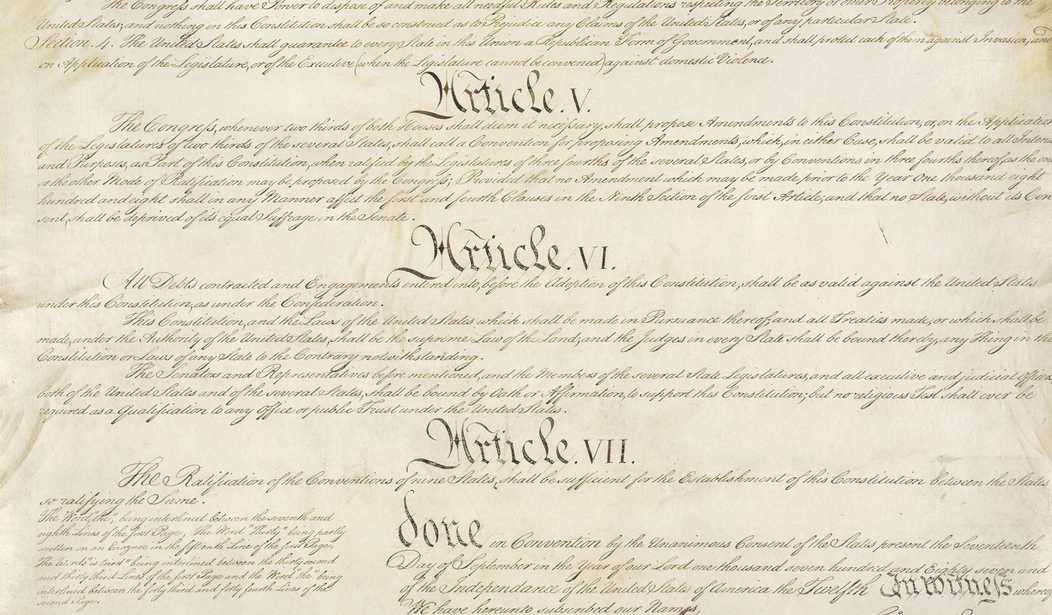Before you begin wondering if my account was hacked by activists from the Southern Poverty Law Center, allow me to assure you that wasn’t the case. The title is a reference to a recent op-ed from Frank Miele at RealClearPolitics titled, “We Need a Constitution That Means What it Says.” Rather than arguing that the Founding Document was poorly written or that its authors somehow got it wrong, Frank is pointing out that the Supreme Court has taken to ignoring the actual words that were written. Despite receiving many accolades from Constitutional conservatives following recent decisions, some of the rulings we’ve seen were handed down were based on a very revisionist interpretation of the Constitution rather than an originalist one. As a prime example, he points to Moore v. Harper, where the court rejected the so-called “independent state legislature” theory when setting election laws. But as Frank points out, that’s not “a theory.” It’s the literal wording of the Constitution.
The mainstream media (and of course their Democratic Party allies) celebrated the court’s decision in Moore v. Harper that rejected the so-called “independent state legislature” theory. The New York Times called the theory “dangerous.” Vox said the ruling was a “big victory for democracy.” Those who supported the independent state legislature “theory” were called extreme, fringe, radical, and worse. In other words, they were Trump supporters.
The only problem is that if the theory is extreme, then so is the U.S. Constitution, because no matter how much the 6-3 majority insists otherwise, it isn’t a theory at all. It is the plain language of the Constitution. Check it out for yourself.
Article 1, Section 4 of the Constitution says specifically, “The Times, Places and Manner of holding Elections for Senators and Representatives, shall be prescribed in each State by the Legislature thereof; but the Congress may at any time by Law make or alter such Regulations, except as to the Places of chusing Senators.”
The author goes on to note another recent decision regarding the appointment of presidential electors. That’s another case where the Constitution specifically assigns the responsibility for how that process is handled to the legislatures of the states. But it hasn’t actually worked out that way in the modern era.
In reality, the U.S. Constitution has, over the years, been abused more badly than an underage cartel drug mule. And some trends have taken place over such a long period of time that people seem to simply accept them. Take, for example, the rampant abuse of the Interstate Commerce Clause, which has been going on for centuries and has been used to swell the powers of the federal government vastly at the expense of the states.
A careful search of the full federal legal code will find the Commerce Clause referenced in more laws than you can count. That’s because Congress passes a lot of laws that they should have no business passing. Yet if they can point to any instance where money changes hands, they invoke the Commerce Clause. But the Founders wrote that clause envisioning a collection of powerful and occasionally competing states. That’s not how the country evolved, unfortunately. And yet the courts allow Congress to get away with this trick over and over again.
With all that in mind, I would quibble a bit with the wording Frank Miele chose regarding a Consitution that “means what it says.” The document means what the Founders meant when they wrote it. The words remain the same today, but they are being interpreted in different ways that favor more centralized power and less control by the states. Unfortunately, none of the authors have survived to stand and defend themselves in the 21st century. And the people making the final call today see things differently.







Join the conversation as a VIP Member